…. by whom I mean, of course, Henry the Navigator (1394 – 1460).
As we entered Lisbon, sailing up the River Tagus, on the north bank there is the ‘Padrão dos Descobrimentos’, Monument to the Discoveries, showing Henry standing on the prow of a ship. In his hand is a caravel, the ships used by him for exploration, and ranged below him are more minor subjects such as kings, sea captains, artists, scientists etc, representing figures from the Portuguese Age of Discovery.
And in Lagos, the port from which many of the ships sponsored by Henry set sail, there is a statue celebrating the 500th anniversary of his death.
Clearly this demonstrates the overall importance of the navigator in the scheme of things. But is he deserving of being my navigational hero?
Interestingly he is not known as ‘the navigator’ in Portugal, but as Infante Henrique, Prince Henry, the third son of King Joao I of Portugal. And he did not establish a school of navigation although he did employ cartographers to map the areas explored by his ships. Nor does he appear to have done much actual sailing himself but sponsored voyages of exploration and reaped the rewards in terms of the gold and slaves brought back.
His main drive seems to be a desire for exploration, particularly of the African coast as he was fascinated by Africa and the legend of Prester John and a Christian kingdom in Africa. Also a desire for the development of maritime trade and the search for new trade routes and in this he was the forefather Portugal’s Age of Discovery. He promoted trade and maritime exploration to such a degree that Portugal became powerful and wealthy.
At that time the ships of the Mediterranean were too slow and too heavy to make these voyages of exploration. Under his direction, a much lighter, faster ship was developed, the caravel, which had triangular lanteen sails, was highly manoeuvrable, could sail much nearer into the wind and explore shallow waters and rivers.
During Henry`s time and after, the Portuguese navigators discovered the North Atlantic “Volta do Mar” (the return from the sea). This was a major step in the history of navigation, when an understanding of the winds was crucial to navigation in the age of sail. Understanding the Atlantic gyre (the currents that flow in the Atlantic) and that the winds circulate around the North Atlantic in a clockwise direction, enabled ships to return home from the Canary Islands or West Africa and later opened up the main route between the New World and Europe. Instead of sailing directly northeast, beating into the prevailing winds, they realised that they needed first to sail far to the west, then northeast to the Azores, and then east in order to return to Europe. Christopher Columbus would use this knowledge on his transatlantic voyages (and we are using the trade winds and currents to plan our circumnavigation).
Trade winds:
In Henry’s time the Portuguese had explored the coast of Africa as far as the present-day Sierra Leone. Twenty-eight years later, Bartolomeu Dias proved that Africa could be circumnavigated when he reached the Cape of Good Hope. In 1498, Vasco da Gama became the first European sailor to reach India by sea, and the first circumnavigation was completed in 1522 when one of the ships of Portuguese explorer Ferdinand Magellan arrived back in Spain (Magellan himself was killed halfway in a skirmish with the natives in the Philippines). I imagine that the men who set sail on these voyages did so with even more of a sense of excitement and trepidation than I did. No checking the weather forecasts on WiFi, keeping up with family by email, or Easyjet home if it all got too much.
Henry was appointed by the Pope as Governor of the Order of Christ, a wealthy military order who helped lead crusades in the lands of the infidels and convert them to Christianity. He sponsored voyages down the coast of Africa and to the Canaries that were primarily slaving expeditions, bringing back numerous African slaves for his own use and for sale by him, and justified this on the grounds that he was converting these captives to Christianity. Henry could be blamed for founding the African slave trade, the first public sale of African slaves in taking place in Lagos on the Algarve in 1444.
On a disastrous expedition to Tangier, organised by Henry, his younger brother Ferdinand was captured. Ferdinand died 6 years later in captivity after the Portuguese court, including Henry, refused to pay the ransom requested, which was the return of the town of Ceuta on the Moroccan coastline, Spanish territory even today.
My research is from learned sources such as Wikipedia, and even my superficial reading clearly unearths much deeper and darker issues. I think that I’ll keep looking for a hero though.

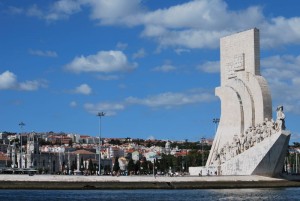
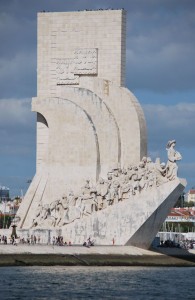
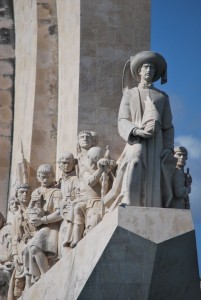
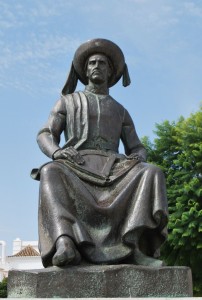
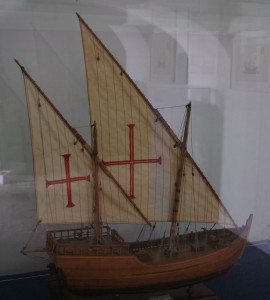
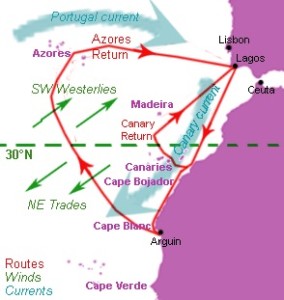
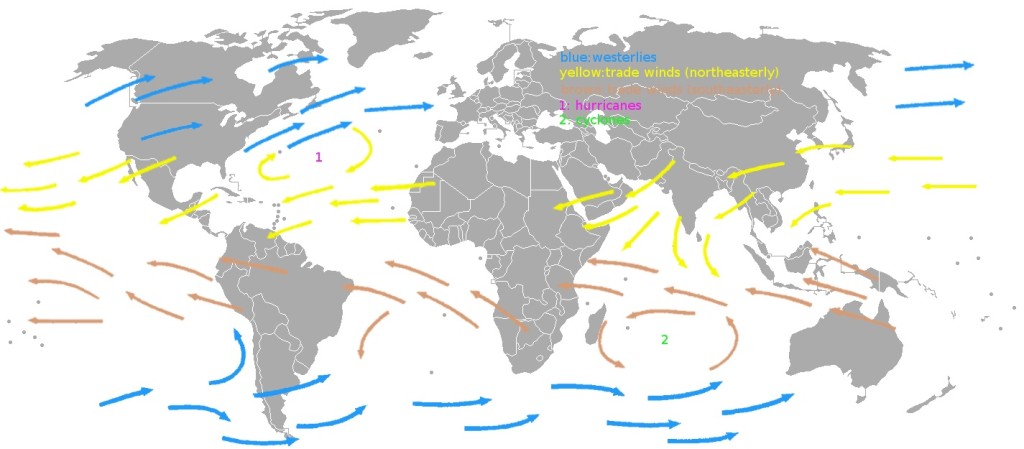
2 Comments
Jim Lucas
September 7, 2015 - 9:16 pmDear Annie, for hero worship have you considered Dora the Explorer who may have been more intrepid than ‘Henry’. I’m surprised Wikipedia didn’t inform you that your navigator was also known for his cleanliness and the vacuum world have named a specific product after him – never mind the trade winds when you have suction ones!
Thanks for your lovely birthday card love j
annie
September 8, 2015 - 7:17 pmDear Jim. Thank you for your most interesting contribution but I am not entirely convinced that you are taking my blog seriously. Happy Birthday anyway Annie xx